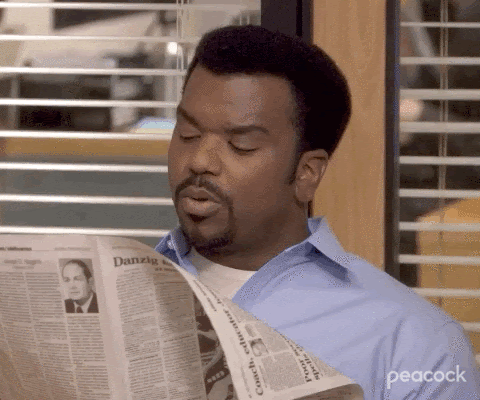Eye to eye
Plus, why too much free time can be a bummer.
“Hookup culture has convinced students that they should be embarrassed for having feelings and feel weak for wanting connection.” — Lisa Wade, author of American Hookup: The New Culture Of Sex On Campus.
BRAIN WAVES
Eye to eye. Eye contact can be powerful (sometimes too powerful). Now, a new study finds that breaking eye contact can make a conversation more engaging, too. Students at Dartmouth University were brought into a lab, equipped with eye-tracking glasses, and paired up for a 10-minute conversation. Researchers studied the dynamics of their conversation, paying special attention to moments of eye contact and when the students’ pupils dilated in synchrony. “When two people are having a conversation, eye contact signals that shared attention is high —that they are in peak synchrony with one another,'' said lead author Sophie Wohltjen. But the study also found that as eye contact persists, synchrony decreases — which is actually good for the conversation. “Eye contact may usefully disrupt synchrony momentarily in order to allow for a new thought or idea,” said Thalia Wheatley, the study’s senior author. After the students broke eye contact, their synchrony went back up. The study demonstrates how important eye contact can be to a conversation. And breaking eye contact seems just as important as making it.
Time out! We could all use more free time. But there’s good news: You might not need as much of it as you think to be happy. According to new research, too much free time leads to more stress and lower well-being. “While too little time is bad, having more time is not always better,” said Marissa Sharif, lead author of the paper. Sharif analyzed data from more than 20,000 Americans who took the American Time Use Survey. These volunteers gave a detailed account of what they did during a 24-hour period, then reported their sense of well-being. More free time made people happier, but that happiness leveled off after two hours. After five hours, well-being actually started to decline. “Our findings suggest that ending up with entire days free to fill at one’s discretion may leave one similarly unhappy,” Sharif said. “In cases when people do find themselves with excessive amounts of discretionary time, such as retirement or having left a job, our results suggest these individuals would benefit from spending their newfound time with purpose.” Purpose? We can get on board with that.
Marriage is hard — and there are signs it’s becoming even harder. We examine how long-term relationships have changed over time, and whether we might be able to improve marriage by asking less of it. Listen to learn more.
ON THE PODCAST
Sept 13: Casual sex typically isn't about love. But what if it's not even about lust? Sociologist Lisa Wade studies "hookup culture," and believes the rules and expectations around sex and relationships are different for college students today than they were for previous generations. In this episode, we consider how the pandemic may be changing students' views on hookups and intimacy.
Sept 20: In our evolutionary past, our group identities were an important source of protection. But they can also be a source of conflict and pain. In this episode, how group identities bring us together, tear us apart, and transform our understanding of the world.
Listen on Apple [button]
Listen on Spotify [button]
MIND GAMES
A man pushes his car to a hotel and pays the owner of the hotel. Then he pushes his car away. What was he doing?
LAST WEEK’S PUZZLE
What common English word contains the letters "WSP", in that order, without any letters between?
The Answer: Newspaper
FROM THE TWITTERATI…
A MOMENT OF JOY
This beaver is going to make an epic salad.
Have an idea for Hidden Brain? A story you want to share with us? Send an email to ideas@hiddenbrain.org. And if you’d like to support our work, you can do so here. Listen to us on Spotify, Apple or your favorite podcast platform.






